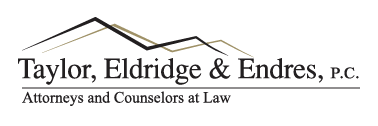The NYS Legislature recently passed a new law, signed by the Governor in September 2017, which purports to impose conflict-of-interest reporting requirements upon condominiums and cooperative housing corporations.
The law requires, first of all, that at least once each year, each “director” of a condominium or co-op board receive a copy of the Related Party Transactions section from the NYS Not-for-Profit Corporation Law (Section 715) or, for a co-op board, a copy of the Interested Directors section from the Business Corporation Law (Section 713). These provisions are similar to each other and prohibit boards from entering into contracts where a conflict of interest exists, unless the conflict has been disclosed by the interested director.
The new law then requires that condominium and co-op boards provide an annual report to the “members” or shareholders, which report is to be signed by each director, and which must include the following information for each contract entered into or voted on by the board over the previous year that was a “related party transaction” or that involved an interested director:
- A list of all such contracts voted on by the board, including the name of the contract recipient, the contract amount, and the purpose of the contract.
- A record of each meeting at which a contract was voted on, including which directors were in attendance and a record of the vote, including how each director voted.
- The date of each vote and the date the contract would be and remain valid.
If no such “related party” or “interested director” transaction took place during the prior year, the board must still issue to the members or shareholders a statement, signed by each director, that no actions were taken which require disclosure.
The law takes effect January 1, 2018.
There are numerous problems with the law as it is currently configured. First, while the text states that it applies to condominiums and cooperative corporations, the law actually amends the Not-for-Profit Corporation Law and the Business Corporation Law. Neither of these laws typically pertain to condominiums. Condominiums in NYS are governed by the Real Property Law, which was not amended and which is not mentioned in the new law. Most condominiums are not incorporated entities. Furthermore, homeowners associations are not mentioned in the text, although most, if not all, are not-for profit corporations. Thus, unless and until the law is amended, it is an open question as to whether it applies to condominiums or homeowners associations. The only certainty is that the law applies to cooperative housing corporations, which are mentioned in the text and which are almost uniformly subject to the Business Corporation Law.
While confusion reigns, we recommend to all our clients – condominium, co-op and HOA – to comply with the law to be on the safe side.
While the law requires annual disclosure, it does not state specifically when the disclosure is required. Presumably, it must take place within a year of the effective date. Issuing the disclosure statement in conjunction with the notice of annual meeting, distribution of the financial statement, or at the end of the fiscal or calendar year would all be options that would ensure compliance.
Finally, there is no provision in the law for enforcement or penalty for non-compliance. Again, to be on the safe side, we recommend to our clients that they comply with the law. The requirements are not so onerous that a Board should risk the consequences of being in default.
December 2017


